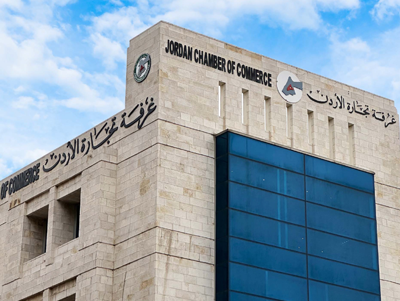You are here
Foreign reserves strengthen confidence in national economy — JCC
By JT - Apr 15,2025 - Last updated at Apr 15,2025

Foreign reserves stand at $22.02 billion, covering the Kingdom’s imports of goods and services for 8.5 months, according to Firas Sultan, representative of the financial and banking sector in the Jordan Chamber of Commerce (JT file)
AMMAN — The Central Bank of Jordan’s (CBJ) foreign reserves have reached "unprecedented" levels, bolstering confidence in the Kingdom’s economic stability and its capacity to overcome challenges, according to Firas Sultan, a representative of the financial and banking sector in the Jordan Chamber of Commerce (JCC).
As of the end of March, foreign reserves stood at $22.02 billion, covering the Kingdom’s imports of goods and services for 8.5 months, the Jordan News Agency, Petra, reported on Tuesday.
Foreign reserves refer to the deposits and bonds held by central banks in foreign currencies, with the US dollar being the primary reserve currency.
Other foreign currencies, including the euro, British pound, and Japanese yen, also contribute to these reserves, which play a “critical” role in stabilising the national currency and facilitating debt repayment.
Sultan emphasised that foreign reserves are a “key” indicator of a country’s economic resilience.
“Their significant increase reflects Jordan’s ability to face global and local economic pressures while maintaining financial stability. These reserves also highlight the effectiveness of Jordan's monetary policy, which has successfully adapted to evolving economic conditions,” he said.
The “record” levels of foreign reserves are attributed to “strategic” government decisions aimed at enhancing the business environment and driving economic growth, he said, adding that these measures, in line with the country’s Economic Modernisation Vision, have played a pivotal role in shaping the positive economic trajectory.
“The substantial foreign reserves provide essential support for trade operations, offering financial stability for businesses engaged in imports and exports.”
Sultan also pointed out that this development sends a “strong” signal to investors, demonstrating the national economy’s robust growth prospects and ability to generate favourable results.
“The success in building these reserves underscores the effective management of monetary policy by the Central Bank of Jordan.”
Sultan highlighted that the CBJ's “prudent” policies have enabled the country to build foreign reserves sufficient to cover extended periods of imports, further supporting the Kingdom’s economic stability and fostering a "favourable" investment climate.
















